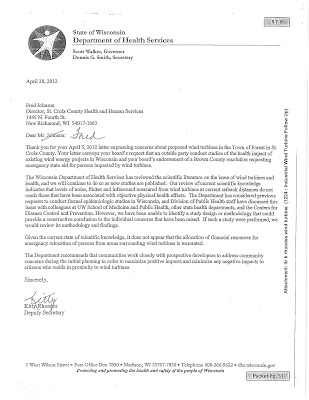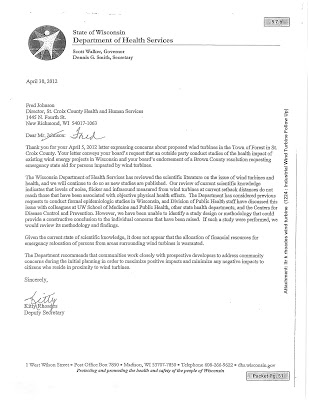by jboullion | Jul 23, 2012 | Uncategorized
In a weekend editorial the Milwaukee Journal Sentinel quoted RENEW’s executive director Don Wichert:
While national leaders dither, local officials and families can start doing things to reduce human impact on climate change
It’s possible that this summer is just a fluke; that the heat waves and drought that are wreaking havoc for farmers and others are an anomaly, and that the weather will return to “normal” next summer or maybe the summer after that. That it’s just summer and it’s hot, and that this really isn’t part of a trend that climate scientists have been predicting.
But that’s not the way to bet. . . .
“The extreme weather and heat waves are costing lives, hurting farmers and families, and inaction is wasting tax money,” said Rep. Brett Hulsey (D-Madison), member of the Assembly Energy and Utilities Committee in a news release. “We need to take cost-effective steps to reduce greenhouse air pollution, create jobs and protect lives like my Jobs, Energy and Tax Savings Act (AB 117) to reduce energy costs at the 9,000 state facilities by 30% to 75% and cut the risk of extreme climate change.”
“We know that using more renewable energy and more energy efficiency creates more jobs here and produces far less green house gases than the fossil fuels they replace,” said Don Wichert, P.E., Executive Director of RENEW Wisconsin. “Access to renewable energy can be increased by reducing upfront costs through private ownership, by creating fair and consistent electricity policies, and by reinstating utility renewable energy commitments.”
It’s also the message being pushed by a retired Marine colonel and former strategic adviser to the chairman of the Joint Chiefs of Staff, who argues that sustainability and climate change are national security issues. Local leaders need to start the shift to more sustainable practices such as regenerative agriculture techniques and advanced manufacturing because “D.C. isn’t going to do anything,” Mark Mykleby, author of “A Natural Strategic Narrative,” he told the Editorial Board Thursday.
The science says climate change is happening now, not just in computer models or overactive imaginations but in the real world. From rising sea levels to droughts to tornadoes and wildfires, there is a growing list of anomalous events that indicate climate change is already upon us. And the safe bet is to start acting now to mitigate the human effect on climate change at the international, national and local levels.
by jboullion | Jul 23, 2012 | Uncategorized
In a weekend editorial the Milwaukee Journal Sentinel quoted RENEW’s executive director Don Wichert:
While national leaders dither, local officials and families can start doing things to reduce human impact on climate change
It’s possible that this summer is just a fluke; that the heat waves and drought that are wreaking havoc for farmers and others are an anomaly, and that the weather will return to “normal” next summer or maybe the summer after that. That it’s just summer and it’s hot, and that this really isn’t part of a trend that climate scientists have been predicting.
But that’s not the way to bet. . . .
“The extreme weather and heat waves are costing lives, hurting farmers and families, and inaction is wasting tax money,” said Rep. Brett Hulsey (D-Madison), member of the Assembly Energy and Utilities Committee in a news release. “We need to take cost-effective steps to reduce greenhouse air pollution, create jobs and protect lives like my Jobs, Energy and Tax Savings Act (AB 117) to reduce energy costs at the 9,000 state facilities by 30% to 75% and cut the risk of extreme climate change.”
“We know that using more renewable energy and more energy efficiency creates more jobs here and produces far less green house gases than the fossil fuels they replace,” said Don Wichert, P.E., Executive Director of RENEW Wisconsin. “Access to renewable energy can be increased by reducing upfront costs through private ownership, by creating fair and consistent electricity policies, and by reinstating utility renewable energy commitments.”
It’s also the message being pushed by a retired Marine colonel and former strategic adviser to the chairman of the Joint Chiefs of Staff, who argues that sustainability and climate change are national security issues. Local leaders need to start the shift to more sustainable practices such as regenerative agriculture techniques and advanced manufacturing because “D.C. isn’t going to do anything,” Mark Mykleby, author of “A Natural Strategic Narrative,” he told the Editorial Board Thursday.
The science says climate change is happening now, not just in computer models or overactive imaginations but in the real world. From rising sea levels to droughts to tornadoes and wildfires, there is a growing list of anomalous events that indicate climate change is already upon us. And the safe bet is to start acting now to mitigate the human effect on climate change at the international, national and local levels.
by jboullion | Jul 23, 2012 | Uncategorized
In a weekend editorial the Milwaukee Journal Sentinel quoted RENEW’s executive director Don Wichert:
While national leaders dither, local officials and families can start doing things to reduce human impact on climate change
It’s possible that this summer is just a fluke; that the heat waves and drought that are wreaking havoc for farmers and others are an anomaly, and that the weather will return to “normal” next summer or maybe the summer after that. That it’s just summer and it’s hot, and that this really isn’t part of a trend that climate scientists have been predicting.
But that’s not the way to bet. . . .
“The extreme weather and heat waves are costing lives, hurting farmers and families, and inaction is wasting tax money,” said Rep. Brett Hulsey (D-Madison), member of the Assembly Energy and Utilities Committee in a news release. “We need to take cost-effective steps to reduce greenhouse air pollution, create jobs and protect lives like my Jobs, Energy and Tax Savings Act (AB 117) to reduce energy costs at the 9,000 state facilities by 30% to 75% and cut the risk of extreme climate change.”
“We know that using more renewable energy and more energy efficiency creates more jobs here and produces far less green house gases than the fossil fuels they replace,” said Don Wichert, P.E., Executive Director of RENEW Wisconsin. “Access to renewable energy can be increased by reducing upfront costs through private ownership, by creating fair and consistent electricity policies, and by reinstating utility renewable energy commitments.”
It’s also the message being pushed by a retired Marine colonel and former strategic adviser to the chairman of the Joint Chiefs of Staff, who argues that sustainability and climate change are national security issues. Local leaders need to start the shift to more sustainable practices such as regenerative agriculture techniques and advanced manufacturing because “D.C. isn’t going to do anything,” Mark Mykleby, author of “A Natural Strategic Narrative,” he told the Editorial Board Thursday.
The science says climate change is happening now, not just in computer models or overactive imaginations but in the real world. From rising sea levels to droughts to tornadoes and wildfires, there is a growing list of anomalous events that indicate climate change is already upon us. And the safe bet is to start acting now to mitigate the human effect on climate change at the international, national and local levels.
by Ed Blume | Jul 23, 2012 | Uncategorized
In a weekend editorial the Milwaukee Journal Sentinel quoted RENEW’s executive director Don Wichert:
While national leaders dither, local officials and families can start doing things to reduce human impact on climate change
It’s possible that this summer is just a fluke; that the heat waves
and drought that are wreaking havoc for farmers and others are an
anomaly, and that the weather will return to “normal” next summer or
maybe the summer after that. That it’s just summer and it’s hot, and
that this really isn’t part of a trend that climate scientists have been
predicting.
But that’s not the way to bet. . . .
“The extreme weather and heat waves are costing lives, hurting
farmers and families, and inaction is wasting tax money,” said Rep.
Brett Hulsey (D-Madison), member of the Assembly Energy and Utilities
Committee in a news release. “We need to take cost-effective steps to
reduce greenhouse air pollution, create jobs and protect lives like my
Jobs, Energy and Tax Savings Act (AB 117) to reduce energy costs at the
9,000 state facilities by 30% to 75% and cut the risk of extreme climate
change.”
“We know that using more renewable energy and more energy efficiency
creates more jobs here and produces far less green house gases than the
fossil fuels they replace,” said Don Wichert, P.E., Executive Director
of RENEW Wisconsin. “Access to renewable energy can be increased by
reducing upfront costs through private ownership, by creating fair and
consistent electricity policies, and by reinstating utility renewable
energy commitments.”
It’s also the message being pushed by a retired Marine colonel and
former strategic adviser to the chairman of the Joint Chiefs of Staff,
who argues that sustainability and climate change are national security
issues. Local leaders need to start the shift to more sustainable
practices such as regenerative agriculture techniques and advanced
manufacturing because “D.C. isn’t going to do anything,” Mark Mykleby,
author of “A Natural Strategic Narrative,” he told the Editorial Board
Thursday.
The science says climate change is happening now, not just in
computer models or overactive imaginations but in the real world. From
rising sea levels to droughts to tornadoes and wildfires, there is a
growing list of anomalous events that indicate climate change is already
upon us. And the safe bet is to start acting now to mitigate the human
effect on climate change at the international, national and local
levels.

by Ed Blume | Jul 20, 2012 | Uncategorized
From the above letter written by Kitty Rhoades, deputy secretary of the Wisconsin Department of Health Services:
The Wisconsin Department of Health Services has reviewed the scientific literature on the issue of wind turbines and health, and we will continue to do so as new studies are published. Our review of current scientific knowledge indicates that levels of noise, flicker and infrasound measured from wind turbines at current setback distances do not reach those that have been associated with objective physical health effects. The Department has considered previous requests to conduct formal epidemiologic studies in Wisconsin, and Division of Public Health staff have discussed this issue with colleagues at UW School of Medicine and Public Health, other state health departments, and the Centers for Disease Control and Prevention. However, we have been unable to identify a study design or methodology that could provide a constructive conclusion to the individual concerns that have been raised. If such a study were performed, we would review its methodology and findings. . . . [Emphasis added]

by jboullion | Jul 19, 2012 | Uncategorized
From the above letter written by Kitty Rhoades, deputy secretary of the Wisconsin Department of Health Services:
The Wisconsin Department of Health Services has reviewed the scientific literature on the issue of wind turbines and health, and we will continue to do so as new studies are published. Our review of cunent scientific knowledge indicates that levels of noise, flicker and infrasound measured from wind turbines at current setback distances do not reach those that have been associated with objective physical health effects. The Department has considered previous requests to conduct formal epidemiologic studies in Wisconsin, and Division of Public Health staff have discussed this issue with colleagues at UW School of Medicine and Public Health, other state health departments, and the Centers for Disease Control and Prevention. However, we have been unable to identify a study design or methodology that could provide a constructive conclusion to the individual concerns that have been raised. If such a study were performed, we would review its methodology and findings. [Emphasis added]


